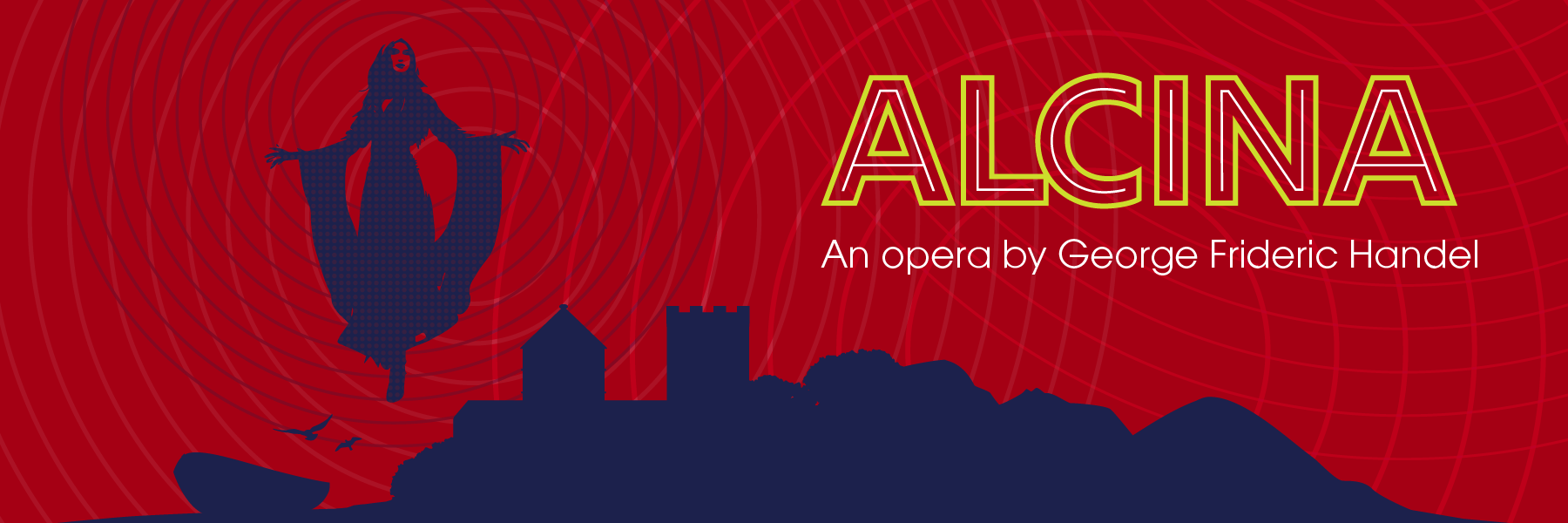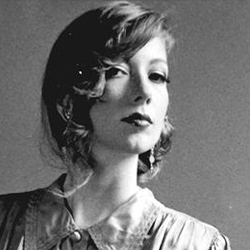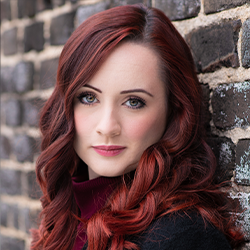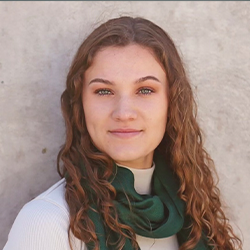by Chas Rader-Shieber
There is great beauty, allure, and a certain kind of magic in the theater.
We are momentarily transported, seduced, and even transformed by its enchantments. But as the curtain falls at the end, we realize that the dream is short lived, and we return to our own lives, hopefully enlightened by the experience—perhaps even our truer selves.
In this production, Alcina’s magical island is the world of the theater itself. She uses its elaborately painted visions, and its surface beauty, to trap and imprison the men she so desperately needs to feed her desire to be loved. Once the illusion is discovered, revealed, and ultimately destroyed, her true nature is ours to see—sad, but profoundly human.
Handel is the master of combining the comic, dramatic, romantic, and the disarmingly poignant. In Alcina, he offers a spectacular range of emotional truths, and a surprisingly moving cast of characters—more like us than we might really want to admit.
Act I
A day on Alcina’s Magic Island
Bradamante, disguised as her own brother, Ricciardo, is in search of her fiancé, Ruggiero. She is accompanied by her guardian, Melisso. They land on the magic island that is ruled by the sorceress Alcina, who has enchanted Ruggiero with her charms. Meanwhile, Bradamante and Melisso are met by Alcina’s sister, Morgana, who, not realizing that Bradamante is only disguised as a man, falls in love with “him.”
Bradamante soon meets Alcina and Ruggiero, who have become inseparable. Alcina welcomes Bradamante and Melisso and declares her love for Ruggiero.
Bradamante, still disguised as Ricciardo, scolds Ruggiero for his faithlessness, but Ruggiero only mocks “him.” He swears that he will never leave Alcina. Rejected by Ruggiero and pursued by Morgana, Bradamante now meets Morgana’s jealous lover, Oronte, and narrowly avoids having a duel with him.
Using Oronte’s jealousy as an excuse, Morgana rejects him. Oronte in revenge tells Ruggiero that Alcina has fallen in love with Ricciardo/Bradamante and, like all her former lovers, Ruggiero will soon be transformed into an animal by the sorceress. Ruggiero confronts Alcina in front of “Ricciardo.” Offended that he thinks she is unfaithful, Alcina leaves. Bradamante tries to reveal her true identity to Ruggiero, who does not believe her. He urges Alcina to prove her love by getting rid of his rival. Out of desperation, Bradamante, still disguised as Ricciardo, throws herself into Morgana’s arms.
Act II
That night
Ruggiero is looking for Alcina. Melisso meanwhile disguises himself as Ruggiero’s former tutor, Atlante, and gives him a magic ring. The ring undoes the spell that Alcina has cast over Ruggiero. Freed of the spell, he immediately desires to see his beloved Bradamante again. When she once again reveals her true identity, he decides that this is another of Alcina’s spells and spurns her. Eventually, Ruggiero begins to see what has happened. Meanwhile, Alcina and Morgana both sense that something has changed in the men they love. When Oronte tells them that Ruggiero is secretly getting ready to leave with Bradamante, Alcina is heartbroken. Morgana, however, refuses to believe that she has been betrayed, but when she hears Bradamante and Ruggiero talking together, she realizes that she has been betrayed twice: by a woman disguised as a man, who also lied to her about being in love. As Ruggiero prepares to leave the magic world, Alcina tries to conjure up spirits to help her regain his love. As the act ends, she curses her magic powers and falls into a deep and troubled sleep.
Act III
The next morning
Morgana admits that she still has feelings for Oronte, who, in turn, forgives her inconstancy. Alcina fails in her last desperate attempt to keep Ruggiero’s affections. He is determined to gain his freedom by force, if necessary. Alcina tries to stop him with her magic powers. Ultimately, Alcina’s forces are beaten by Ruggiero and his allies. When Ruggiero destroys the source of Alcina’s power, her magic kingdom collapses. In the end, Ruggiero is celebrated as the liberator of all those who were enslaved by Alcina’s power.
by Kitt Westerduin
Ph.D. Student in Musicology
Handel’s Alcina premiered on April 18, 1735, at London’s Covent Garden Theater to enormous success. The work was performed 18 times during its initial run and was even revived the following season, to be honored by the attendance of King George II. Such acclaim could not have come at a better time for Handel, who had been in the midst of a commercial slump leading up to the work’s composition. Alcina’s popularity arguably revived Handel’s reputation, after a difficult season performing for near-empty houses, as the foremost composer of Italian opera in England. Today, the work remains a testament to the composer’s masterful use of operatic conventions to create a dramatically compelling theatrical experience.
The plot of Alcina was derived from Ludovico Ariosto’s sixteenth-century poem Orlando Furioso, a chivalric epic set against the backdrop of the Carolingian war between Christian and invading Saracen forces. Handel’s immediate source was the libretto of Riccardo Broschi’s 1728 opera L’isola di Alcina, likely composed for Broschi’s brother (and star of Handel’s rival opera company), the internationally renowned castrato Farinelli. Handel, however, adapted the libretto to better serve the drama. In doing so, he reintroduced the natural and supernatural elements of Ariosto’s poem to heighten its magical foundation.
The story is set on an enchanted island where the hero, Ruggiero, has been bewitched by the sorceress Alcina, whose former lovers have been transformed into beasts who haunt the island. Ruggiero surely awaits the same fate, but fortunately, his betrothed, Bradamante, takes to the island with Ruggiero’s tutor Melisso to release the young hero from Alcina’s spell and bring him home.
In IU’s production, the theater itself, with its own enchanting artifice, serves as Alcina’s island. Act I opens with the arrival of Bradamante and Melisso to Alcina’s island. As yet unaffected by Alcina’s spell, they see the setting as it really is, a desolate space with a few empty chairs. It is not until after Morgana, Alcina’s sister, welcomes the “heroes” that the curtain lifts to reveal an opulent baroque opera house. The fantastic shift in scenery transports Bradamante and Melisso—and the audience—into Alcina’s magically forged idyll. Morgana, immediately captivated by Bradamante, who is disguised as her brother Ricciardo, takes to the stage to fawn over the newcomer with her aria “O s’apre al riso.” The triple meter and major key, historically associated with idealized rural life and innocence, is set in conflict with Morgana’s clearly performative gestures. As such, this setting hints at the theatrical subterfuge that has ensnared the island’s inhabitants and, self-referentially, to the temporary escapism of opera itself.
The supernatural content may have affected the composer as much as his protagonists. One contemporary account describes Handel at rehearsal as “a necromancer in the midst of his own enchantments.” Indeed, Handel generally seems to have conjured his most affecting music for magical operas, and for Alcina’s character in particular. Handel’s sensitive treatment of the titular sorceress presents her as paradoxically human. As opposed to the one-dimensional spellcaster of Ariosto’s poem, Handel’s Alcina is emotionally complex. Her opening revelry in hedonistic pleasure expressed in “Di cor mío” is marked by surprising gratitude for Ruggiero’s love and her anxiety over its potential loss. In Act II, her fears are realized when Ruggiero is released from her spell and plots to flee with Bradamante. Torn between anger at his betrayal and the love she still has for him, Alcina collapses into her great lament, “Ah! mio cor.” The aria opens with a prolonged instrumental ritornello of detached, pulsating chords in the key of C minor, which outline her despair. After nearly a minute, Alcina enters on a single, doleful utterance, but the strings have already faded away, leaving her voice unaccompanied. In this moment, the musical setting embodies her abandonment. As the aria continues, she lingers on words like “sola” (alone) and “perché” (why?), further emphasizing her distress. The ritornello reenters, encasing her sorrow in sonorous affect. The lament then transitions to the B section, an outburst of vengeful fury, before ultimately surrendering again to her lamentation.
This aria, with its ABA form, is one of the many examples of the da capo aria form in Alcina. Opera seria, Italian serious opera of the late baroque period, was strictly governed by generic conventions, such as the da capo aria, that could sometimes result in the sacrifice of an aria’s expressivity in favor of its form. However, as “Ah, mio cor” attests, Handel excelled at reconciling dramatic content and formal constraints. His sensitivity to Alcina’s complex motives and reactions in this aria, as well as her despairing act-ending aria “ombre pallide,” balances her cruel disposition with vulnerability. Unlike earlier representations, Handel’s Alcina is a sympathetic trickster whose eventual downfall colors the opera’s happy ending with an element of tragedy.
The role of Alcina was originally played by Anna Maria Strada del Pò, an Italian soprano who remained faithful to Handel in the face of the many defections to the newly founded Opera of the Nobility, and whose unique vocal style developed with and through the composer’s own writing. Handel notably adjusted some of his own melodies to suit the strong upper range of her voice. The effect must have been not only thrilling for baroque audiences, but also melodically reflective of the sorceress’s strange power.
The case of Anna Strada demonstrates how baroque opera divas and divos shaped the composition itself. Their star power drew in audiences and, as such, many roles were tailored to them. The composer had to at once write with the singer in mind and also know when to put his or her foot down to their demands. In the original production, Ruggiero was played by Giovanni Carestini, the only castrato who could rival the great Farinelli who starred at the Opera of the Nobility. When Carestini insisted that Handel rewrite his Act II aria, “Verdi prati,” to showcase his virtuosity, Handel marched over to his house and told the singer point blank that he would sing it as Handel had written, or he would not get paid. Needing no more convincing, Carestini dropped his campaign. Thankfully so, as the surviving aria is another beautiful example of Handel’s ability to infuse an opera seria verse with a character’s complex, even conflicting, motivations.
“Verdi prati” is Ruggiero’s farewell aria to the verdant pleasures of Alcina’s island. Steeped in pastoral imagery, the text meditates on the “green meadows and pleasant woods” that will lose their beauty when Ruggiero shatters the urn that holds Alcina’s power. Handel breaks convention by setting the aria in a rondo instead of the typical da capo form, allowing Ruggiero to musically return over and over again to reflection on the earthly paradise he must destroy. The revised structure gives insight into the hero’s emotionally fraught decision to reject arcadian escapism for duty and love.
Indeed, contemporary English audiences understood Alcina as a moral allegory. The young hero, Ruggiero, must choose between a path of virtue and dignity and one of pleasure and indolence, symbolized by Bradamante and Alcina, respectively. Ruggiero’s ultimate choice to live virtuously necessitates the sacrifice of illusory, if not sentimental, pleasures.
Alcina is the last of Handel’s five magical operas. Unfettered by the constraints of a factual plot, Handel could exploit resources such as ballet, chorus, and fantastic scene changes to delight his audience. As musicologist Winton Dean writes, Alcina “. . . appeals equally to the eye, the ear, and the imagination, forming a deeply satisfying fusion of opera’s component arts, music, drama, dance, and spectacle.” The enduring legacy of Alcina is indebted to Handel’s mastery of dramatic expression.























